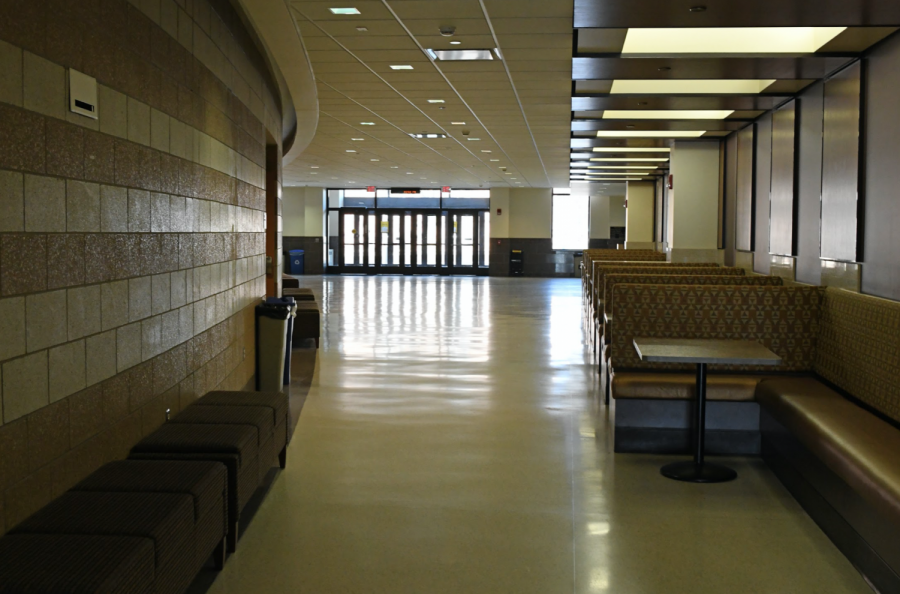Chancellor: UWO will reimburse students for disrupted on-campus housing, dining
Marissa Chamberlin / Advance-Titan UW Oshkosh buildings are eerily empty after face-to-face instruction was canceled to stop the spread of the coronavirus.
March 19, 2020
Chancellor Andrew Leavitt announced today that UW Oshkosh will reimburse students prorated charges for on-campus housing and dining disrupted by COVID-19 this spring semester.
“It is the right thing to do, and it will help students and families who are enduring financial burdens caused by the pandemic,” he wrote in his mass email.
“In addition to guarding the health and safety of our students, faculty and staff, a top priority at UWO is finding ways to help people weather the financial challenges caused by COVID-19,” Leavitt said. “It is our duty to provide educational and emotional support, and that includes taking a hard look at what coronavirus has caused in terms of financial stressors, particularly those related to on-campus housing and dining plans that UWO students will not be able to use.”
The reimbursements will cover the balance of the spring semester for students who have vacated UWO campuses. Prorated reimbursements will exclude the period of spring break (the week of March 23) and will be issued by the close of the spring academic semester
“We have a lot of work to do to navigate this reimbursement process, but we are committed to completing that work so students will receive refunds by the close of our spring semester,” he said.
Leavitt also noted that UWO is exploring if it can provide relief to students whose university-based jobs have been upended by the COVID-19 response.
On Wednesday, Leavitt announced that face-to-face instruction at UW Oshkosh was canceled and that classes will be taught via “alternative methods” for the remainder of the spring semester to slow the spread of COVID-19.
The announcement came in the form of a campus-wide email, which noted face-to-face spring commencement is also canceled and that over the coming weeks administrators will consider rescheduling to a later date.
Students in residence halls will be required to return to their homes unless they provide “adequate justification for staying,” the email added.
It said students no longer on campus should not come to collect their remaining belongings, until they receive information about collecting their things from Residence Life.
In terms of employees on campus, the email said beginning March 23 only employees needed to “deliver necessary campus services that cannot be completed through telecommuting” will be allowed to physically remain on campus.
It added that staff who’ve requested and received permission to use their office or lab space on the campuses due to a lack of equipment/resources at home will be allowed on the campuses.
Leavitt also hosted a video press conference to update the community about the decision to cancel in-person instruction for the rest of the semester.
Switching to online classes gives international students the ability to go home, because they can take their remaining classes remotely, he said.
Leavitt noted the decision to cancel the spring commencement was a difficult one, because students have worked for at least four years to earn a college degree.
“We understand the impact this has on them and their families,” he said. “It’s just not prudent to have [commencement] at this point, certainly not in the middle of May.”
In terms of getting students out of the residence halls, Leavitt said it’s important to clear the residence halls of as many students as possible.
The staff allowed to remain on campus are those “key to campus operations” include residence hall staff, some food service staff, public safety, IT staff and facilities management staff, Leavitt said.
If a professor falls ill with the coronavirus, Leavitt noted the university has established a “COVID-19 leave pool,” which allows those who contract the virus to continue to receive income.
He added that the university is working to figure out how to issue some kind of refund to students who live in the residence halls, because it’s “the only fair thing to do.”
“They counted on certain services to be provided by the university in terms of living, so we’re going to honor that,” Leavitt said. “We just need to figure out how to do it.”














